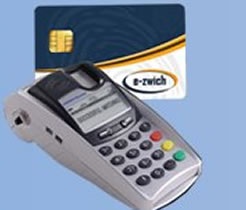
The Ministry of Gender, Children and Social Protection has disbursed funds to more than 3,370 beneficiaries of Livelihood Empowerment Against Poverty (LEAP) through e-zwich biometric smart card, while others have been paid through mobile money.
This last set of payments made via the biometric smart card was Nzema-East and Ellembelle Districts in the Western Region, and Kwahu-West in the Eastern Region and Saboba in the Northern Region.
The Ministry’s decision to also adopt electronic payment was to ensure transparency and convenience in the disbursement of the money.
By using the electronic payment options, the human element in the disbursement process was curtailed and also the system allowed for a more effective audit trail as details of disbursement, receipt of funds and withdrawal can be verified.
The biometric nature of the e-zwich card also means that only the beneficiary could access the money.
The decision to add the non-cash form of disbursing LEAP handouts began in 2013 on pilot which has been extended.
It is anticipated that if these electronic payment systems succeed, it would be extended to cover all beneficiaries.
Mrs Mary Dei-Sarpong, Head of Business Development at Ghana Interbank Payment and Settlement Systems (GhIPSS) lauded government for the initiative and said system would continue to work with the Ministry to ensure the effective use of electronic payments for the disbursement of LEAP.
She expressed the hope that beneficiaries would also cultivate the habit of using non-cash forms of payment such as e-zwich and mobile money, as the country moves away from heavy dependence on cash.
She said efforts are being made to make more Point of Sales available, so that the cards could be used for other transactions other than cash back.
The LEAP programme, the flagship project of the Ministry of Gender, Children and Social Protection, is projecting to disburse about GH¢ 47, 449,626.00 to some 150,785 beneficiary households this year.
This was disclosed this year by Mr Alexander Ackon, a Deputy Minister of Gender, Children and Social Protection on the floor of Parliament.
It is one of the key projects to better the life of people below the poverty line.